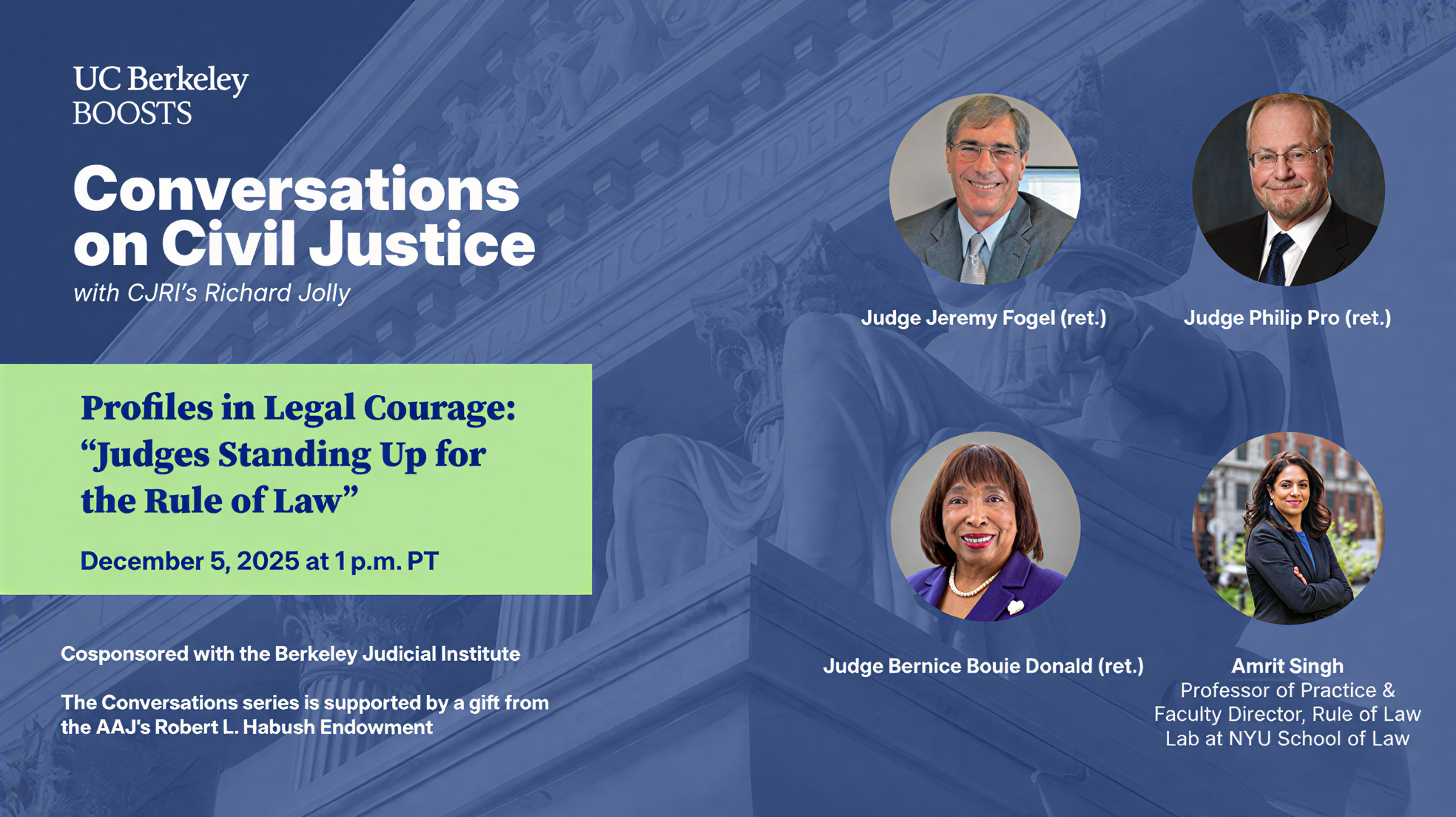The Civil Justice Research
Initiative explores, through interdisciplinary, academically-based
and independent research, how the civil justice system can be made
more available to everyone seeking relief.
107
Rank of the United States among 142 countries in “accessibility and affordability of civil justice.”¹
92%
Percentage of civil legal problems reported by low-income Americans for which they received inadequate or no legal help.²
74%
Percentage of low-income households that have experienced 1+ civil legal problem in the past year.³

UPCOMING EVENT
Profiles in Legal Courage: Judges Standing Up for the Rule of Law
December 5, 2025 at 1 p.m. PT
Earlier this year, on Constitution Day, a group of more than 40 retired federal judges issued an extraordinary first-of-its kind bipartisan statement expressing concern about attacks on the judiciary and the rule of law. Several sitting judges have also recently voiced concern. Why are judges speaking out? How are they responding to the threats on the judiciary and rule of law? What can lawyers and members of the community do to support the continued independence of the judiciary and the rule of law?
Please join us for a discussion of the issues with Judge Jeremy Fogel (ret.), Judge Philip Pro (ret.), Judge Bernice Bouie Donald (ret.), and Professor Amrit Singh from the Rule of Law Lab at NYU Law. MCLE offered. Register Today
RESEARCH SPOTLIGHT: Valerie P. Hans & Richard L. Jolly
Jury trials, a critical part of democracy, are disappearing
The right to trial by jury in criminal and civil cases is enshrined in the U.S. Constitution. It’s also a critically important way in which citizens can participate in democracy. Yet, in a change with profound implications, juries now decide only a tiny fraction of criminal and civil cases in the U.S. The decline over time has been dramatic, triggering warnings from scholars since at least the 1920s. In 1962, when federal judicial statistics became reliable enough to track the trend, juries decided about 6% of civil cases; today that share is less then 1%.
NEWS
American Bar Association files suit to halt government intimidation of lawyers and law firms
The American Bar Association today filed a lawsuit against the U.S. government, more than two dozen federal departments and agencies, and the heads of those departments and agencies, asking a federal court to declare unconstitutional the Trump administration’s ongoing unlawful policy of intimidation against lawyers and law firms and to enjoin the government from enforcing the policy.
¹World Justice Project, Rule of Law Index
²Legal Services Corporation, The Justice Gap: Measuring the Unmet Civil Legal Needs of Low-Income Americans
³Legal Services Corporation, The Justice Gap: Measuring the Unmet Civil Legal Needs of Low-Income Americans